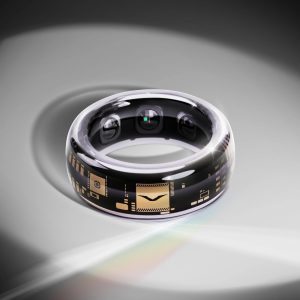In an increasingly digital world, your smartphone holds the keys to your entire life – from banking apps and personal photos to sensitive communications. But is it truly protected, or is it an easy target for evolving cyber threats? This comprehensive guide will transform your device into a digital vault, equipping you with the knowledge and tools to achieve unparalleled mobile security in 2025.
What Makes a Smartphone “Secure” in 2025?
Forget just a simple password! In 2025, a secure smartphone is a sophisticated ecosystem. It's built from the ground up with robust hardware and software security features meticulously designed to shield your personal data. This includes advanced encryption at rest and in transit, secure boot processes that verify system integrity, and a commitment from manufacturers to deliver regular, timely security updates. Ultimately, a truly secure phone places user privacy and data protection at its absolute core, minimizing any potential vulnerabilities.
Why Prioritize Smartphone Security? The Undeniable Benefits and Essential Features
The advantages of a secure smartphone extend far beyond mere technical specifications; they offer invaluable peace of mind. When seeking a secure device, look for these critical features:
-
End-to-End Encryption: Your messages, calls, and stored data remain private, readable only by you and the intended recipient.
-
Hardware Security Modules (HSMs): These dedicated chips act as ultra-secure vaults for cryptographic keys, making them highly resistant to both physical and software attacks.
-
Secure Boot: This process guarantees that your operating system and firmware haven't been tampered with, preventing unauthorized software from loading.
-
Regular Security Updates: A non-negotiable feature! Timely patches from manufacturers address newly discovered vulnerabilities, keeping you protected.
-
Minimal Pre-installed Bloatware: Less software means fewer potential entry points for attackers and enhanced privacy.
-
Biometric Authentication: Advanced fingerprint scanners and facial recognition offer convenient yet robust device unlocking.
-
Privacy-Focused Operating Systems: Some devices go further, offering hardened OS versions with superior privacy controls and reduced data collection.
Getting Started: Practical Steps to Secure Your Smartphone Today
Ready to fortify your device? Here’s a clear, step-by-step guide to setting up a secure mobile environment:
-
Enable Strong Device Lock: Implement a complex PIN, pattern, or passphrase. Critically, avoid easily guessable combinations. Enhance this with biometric authentication (fingerprint, face unlock) for both security and convenience.
-
Update Your Operating System and Apps: This is paramount. Immediately install all available operating system updates and keep all installed applications updated to their latest versions. Updates often contain crucial security patches.
-
Review App Permissions: Take control! Regularly check each app's permissions and revoke any unnecessary access to your location, contacts, microphone, or camera.
-
Verify Encryption: Most modern devices have full-disk encryption enabled by default. Double-check this in your device's security settings.
-
Set Up Two-Factor Authentication (2FA): Enable 2FA for all your online accounts, especially email, banking, and social media, to add a critical layer of security.
-
Install Reputable Security Software: Consider a trusted antivirus and anti-malware app from a well-known security vendor for an extra layer of defense.
-
Configure Cloud Backups Securely: If you use cloud backups, ensure they are encrypted and that you use strong, unique passwords for your cloud accounts.
Beyond the Basics: Expert Tips and Advanced Techniques for Maximum Protection
For those seeking an even higher echelon of digital protection, these expert-level strategies are invaluable:
-
Utilize a Secure Messaging App: Platforms like Signal or Threema offer robust end-to-end encryption and strong privacy features for all communications.
-
Employ a Password Manager: This essential tool generates and stores complex, unique passwords for all your online accounts, eliminating the need to remember dozens of different combinations.
-
Consider a Secondary “Burner” Phone (for high-stakes activities): For extremely sensitive operations, a separate, dedicated device with minimal personal data can offer an additional layer of anonymity.
-
Disable Location Services for Most Apps: Only grant location access to apps that absolutely require it for their core functionality.
-
Professional Tip: “Never connect to public Wi-Fi without a Virtual Private Network (VPN).” A VPN encrypts your internet traffic, rendering it unreadable to potential eavesdroppers. This is especially crucial in cafes, airports, or hotels.
The Ultimate Comparison: Top Secure Smartphones in 2025
Choosing the right device is a cornerstone of your security strategy. Here's a comparison of leading secure smartphone contenders in 2025, highlighting their strengths:
| Smartphone Model | Key Security Features | Operating System | Price Range (USD) | Security Focus |
| Apple iPhone 15 Pro | Secure Enclave, End-to-End Encryption, Regular Updates | iOS | $999 – $1199 | Strong ecosystem security, user privacy focus |
| Google Pixel 8 Pro | Titan M2™ Security Chip, Tensor G3 Security Features, Timely Updates | Android (Stock) | $899 – $1099 | Hardware security, AI-driven threat detection |
| Samsung Galaxy S24 Ultra | Samsung Knox, Secure Folder, Hardware Security Modules | Android (One UI) | $1199 – $1399 | Enterprise-grade security, hardware protection |
| Purism Librem 5 | Open-source OS, Hardware Kill Switches, Privacy-focused | PureOS (Linux-based) | $1099 (approx.) | Maximum user control and privacy |
| Teracube 2e | Focus on longevity, Repairability, Security Updates | Android (Stock) | $249 – $299 | Sustainable security and privacy |
FAQ: Your Quick Answers to Common Security Questions
Q: What is the fundamental difference between a secure smartphone and a regular one?
A: A secure smartphone integrates advanced hardware and software features specifically engineered to defend user data against unauthorized access, malware, and sophisticated cyber threats. While regular smartphones offer basic security, secure models prioritize robust privacy, data resilience, and protection against advanced attacks.
Q: Are iPhones inherently more secure than Android phones?
A: Both iOS and Android platforms have made significant advancements in security. iPhones benefit from Apple's tightly controlled ecosystem and consistent updates. However, premium Android devices from manufacturers like Google (Pixel) and Samsung (Galaxy) also offer formidable security features, including dedicated hardware security modules and proactive patching. The overall security of your device often depends more on your usage habits and the specific model rather than the operating system alone.
Q: Do I genuinely need a VPN on my smartphone?
A: Yes, absolutely, especially if you frequently connect to public Wi-Fi networks. A VPN (Virtual Private Network) encrypts your internet traffic, making it incredibly difficult for anyone to intercept your data. It's a fundamental layer of security essential for safeguarding your online privacy and protecting sensitive information while browsing on unsecured networks.
Who Needs a Secure Smartphone? (Recommended Audience)
-
Business Professionals: Handling sensitive company data, client information, and confidential communications.
-
Privacy Advocates: Individuals who prioritize their digital privacy and want maximum control over their personal data.
-
Travelers: Frequent travelers who rely on public Wi-Fi and need to protect their data from potential eavesdropping.
-
Anyone Concerned About Cyber Threats: If you're worried about identity theft, malware, or phishing attacks, a secure smartphone is a crucial investment.
Take Control of Your Digital Life Today!
Protecting your digital footprint in 2025 starts with your smartphone. By understanding the definition of a truly secure device, diligently implementing these best practices, and choosing a phone with robust built-in security features, you can significantly fortify your personal data. From end-to-end encryption to dedicated hardware security modules, every layer of protection contributes to a safer, more private digital experience.
Ready to transform your smartphone into a digital fortress? Explore the top secure smartphone options listed above and start building your impenetrable data safety strategy today!







